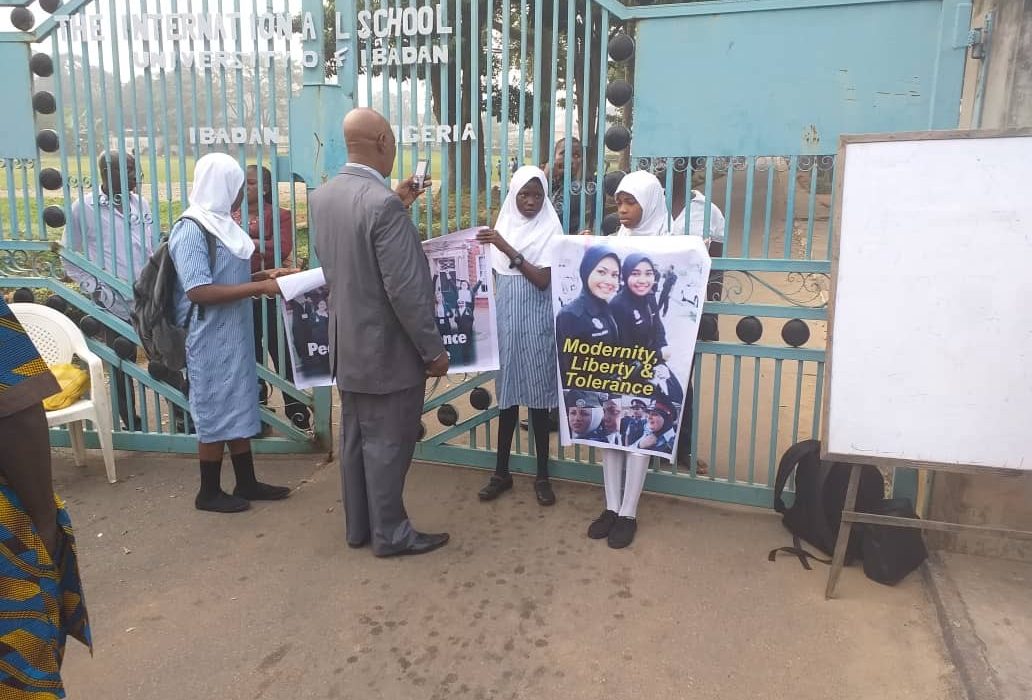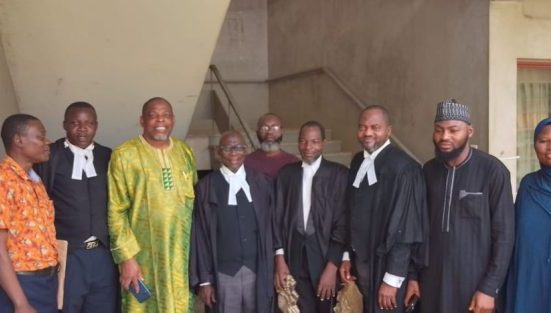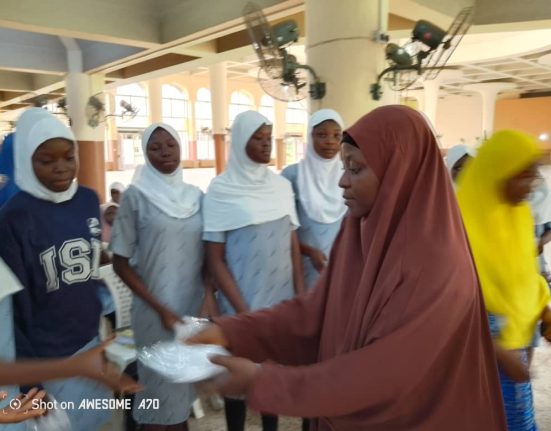
From Our Correspondent
Some female Muslim students of the University of Ibadan International School, Ibadan (ISI), on Wednesday, came out of a six-year legal battle victoriously to enforce their hitherto denied right to wear hijab in school.
TheNewsZenith reports that Justice Moshood Ishola of Oyo State High Court ruled that female students, willing to cover their heads in line with their religious practice, can do so without molestation or harassment.
In his judgment, the presiding judge said he based his verdict on previous court judgments at the Supreme Court.
Ishola held that the school, ISI, as a public institution, should allow female Muslim students the right to wear hijab.
He added that the school does not have the right to deny the students their fundamental human rights.
According to him, the verdict is based on the Constitution of the Federal Republic of Nigeria and other charters.
“The Constitution and other charters grant freedom of religion and association.
“The school, staff or its agents have no right to punish students for using hijab on the school premises or outside.
Read Related News:
JAMB penalises staff for preventing hijab-wearing candidate
Lagos commissioners list: Muslims stage peaceful protest
Scholar urges campaign against same-sex marriage
Prioritise education, prevent strike – MSSNLagos tells Tinubu
Islamic scholar urges Nigerians to emulate Prof. Musa’s character
“Fundamental human rights are inalienable rights and cannot be taken, even by the powerful government.
“The school is a public institution,” the judge ruled.
TheNewsZenith recalls that the controversy over usage of hijab by female Muslim students of the UI-ISI, Ibadan, began in November 2018.
That year, management of UI-ISI denied some female students the right to wear hijabs on top of their uniforms.
The students and their parents dragged the school, the University of Ibadan and some principal officers of the institution to court.
The victimised students are Faridah Akerele, Aaliyah Dopesi, Akhifah Dokpesi, Raheemah Akinlusi, Imam Akinoso and Hamdallah Olosunde.
Others included Aliyyah Adebayo, Moriddiyah Yekinni, Ikhlas Badiru, Mahmuda Babarinde and Fareedah Moshood.








